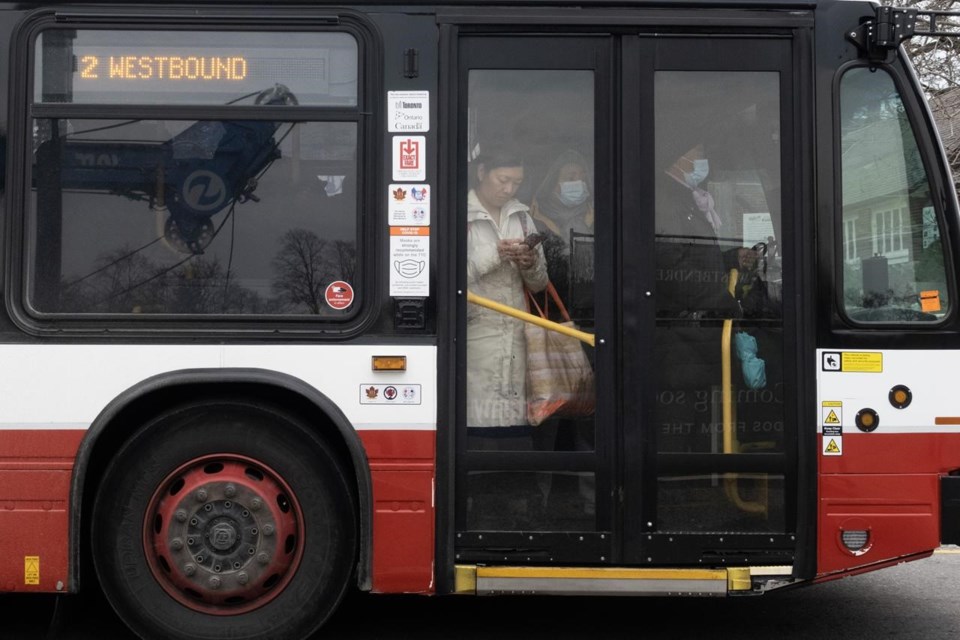Toronto had the least reliable transit service in 2022 compared to other municipalities in the region, according to newly released transit report cards from the Toronto Region Board of Trade.
The average score was based on frequent and base level service, reliability, transit priority, 24-hour service, integration with neighbouring transit systems and service improvement.
While Toronto and Mississauga both received a composite score of about 69 per cent -- or a B letter grade -- Toronto had the lowest score for transit reliability with only 58 per cent of trips being on time. Other municipalities scored over 70 per cent on reliability.
Toronto's lower score was attributed to congestion issues and frequent diversions due to construction. The report notes most recent Toronto transit service cuts are not accounted for and “would negatively affect grading."
The report cards said more funding and integration is needed to keep up with population growth and operating costs of transit across the Greater Toronto Area.
Amer Shalaby, a professor in the University of Toronto's department of civil and mineral engineering, said establishing priority routes that avoid construction zones "would go a long way to improving reliability."
Shalaby said responding quickly to transit delays will requiremore resources, including vehicles and drivers on standby.
"If we are expecting and calling on (agencies) to improve their reliability, then more resources have to be put in place and those come at a cost," Shalaby said.
The Toronto Region Board of Trade is advocating forservice integration among different transit agencies operating in the region so that riders can pay consistent fares and rely on harmonized schedules.
In March, the provincial government committed to integrating transit services and fares across the GTA by the end of the year.
The board of trade calls that a “critical missing piece of the region’s transit puzzle.”
To get an A in Toronto, the report's suggestions include expanding express bus services, adding more streetcar routes, addressing safety issues on the TTC and integrating fares with GO Transit.
“Without a regionally integrated network with frequent, all-day service, it will be impossible to efficiently connect people to jobs, housing and other opportunities,” the report notes.
Outside of Toronto, Oakville and Milton tied for the worst grade. The report cards said that Milton's transit service "remains very limited for a rapidly growing city," while service in Oakville has been significantly reduced since 2010.
Giles Gherson, executive vice president and chair, of the Economic Blueprint Institute at the Toronto Region Board of Trade, said the provincial and federal governments must support municipalities' transit operation and equipment costs to meet the growing demand.
“The population has massively outgrown the system and certainly in outlying municipalities in particular,” Gherson said in an interview.
Shalaby agreed on the "huge need" for upper levels of government to support operating budgets for transit agencies.
The report also said GTA transit systems need to improve long-distance travel and expand hours of service to accommodate shift workers.
This report by The Canadian Press was first published July 5, 2023.
Nairah Ahmed, The Canadian Press

